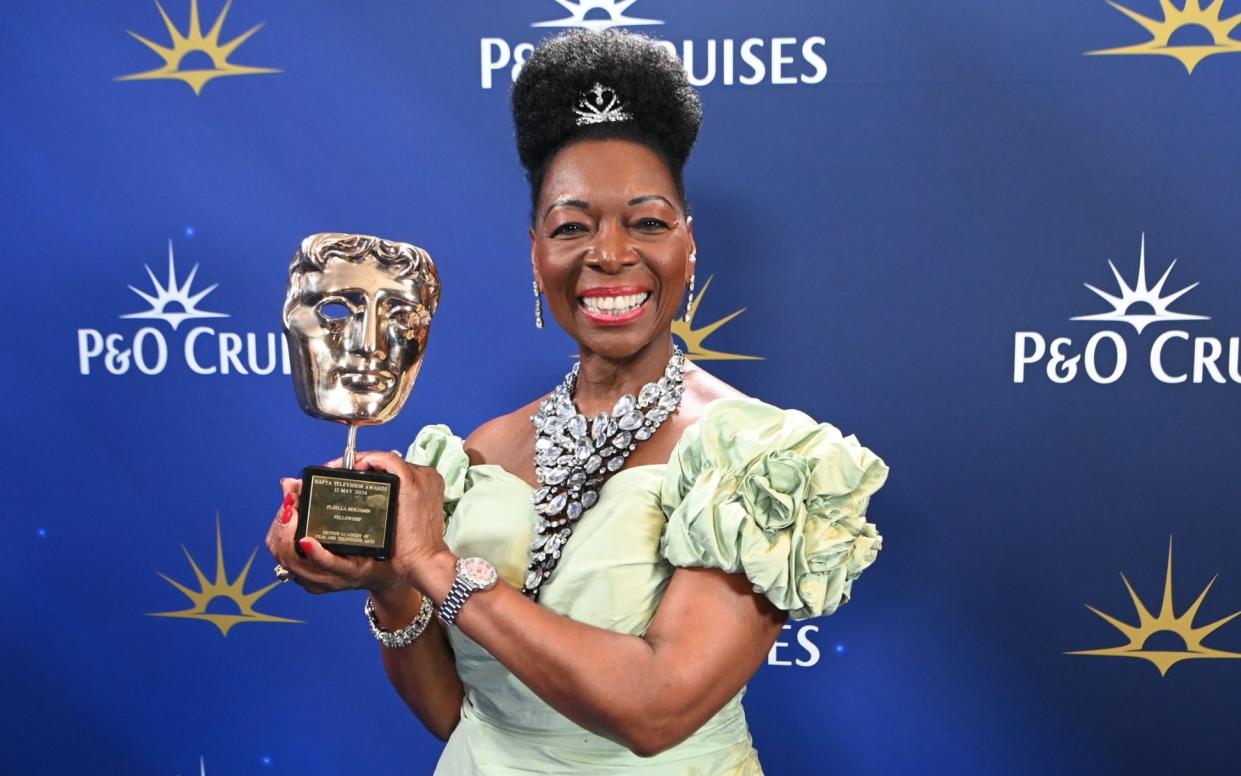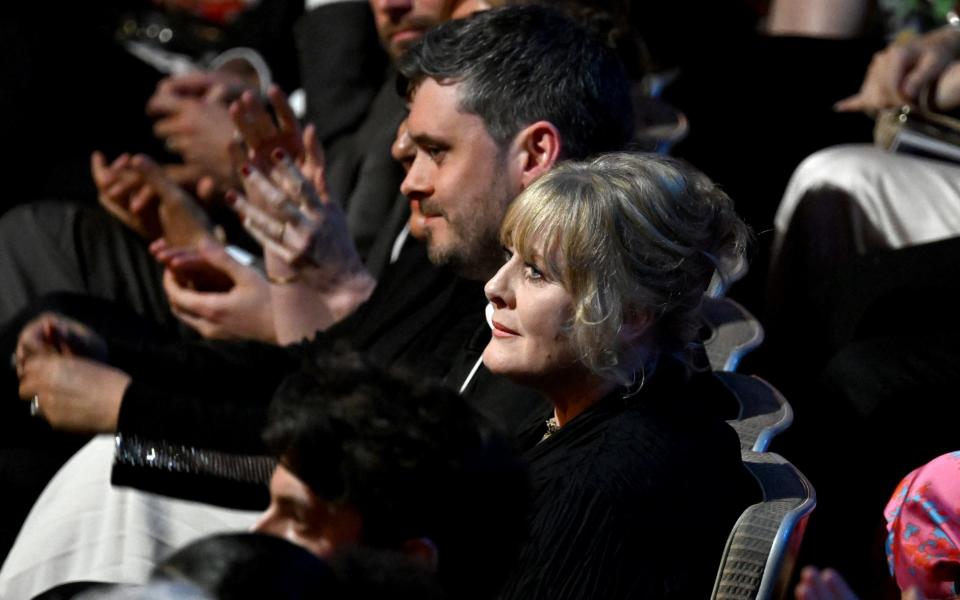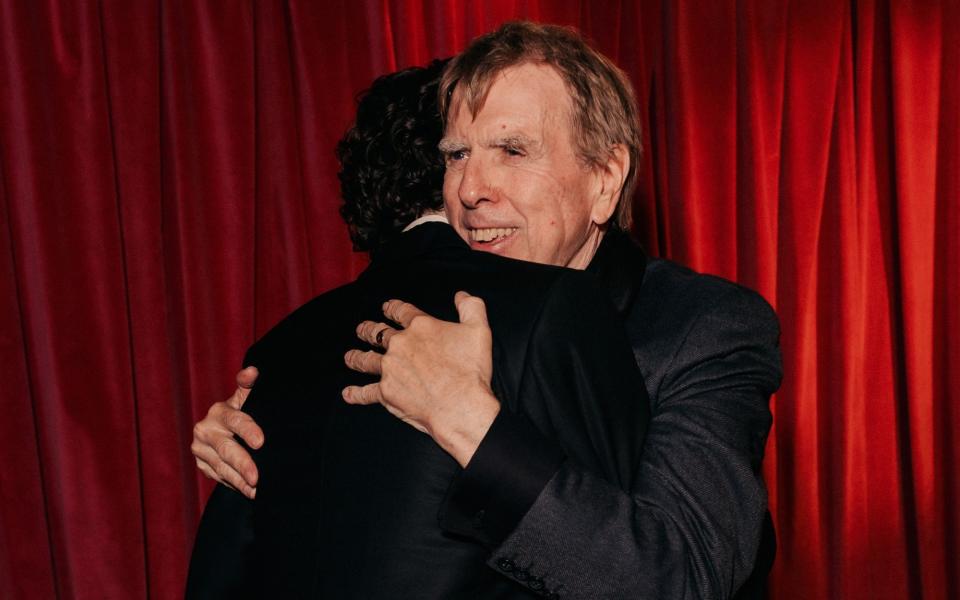TV Baftas, review: a total waste of primetime – and Sarah Lancashire

It might be much-maligned in certain circles but the BBC still punches its weight when it comes to top-class TV. The Corporation took home more than half the gongs at the British Academy Television Awards (BBC One). As the final winner, Happy Valley star Sarah Lancashire, said: “Thank you for giving our very British drama a very British home.”
Less than 24 hours after the Eurovision Song Contest, what the viewing nation didn’t need was another overlong, overblown event. Such are the vagaries of the showbiz calendar. At least there was no chance of nul point humiliation here. Well, unless you’re ITV or Channel 4. Neither got much of a look-in.
Lancashire’s Leading Actress prize was just reward for her stellar shift as force-of-nature Yorkshire copper Sgt Catherine Cawood. Her modest speech was so understated that it was barely there but you could have heard a pin drop.
Writer Sally Wainwright’s crime epic also scooped Memorable TV Moment for its climactic kitchen showdown. This still didn’t compensate for overlooking Lancashire’s co-star James Norton in the acting categories. Apart from live events, Happy Valley’s finale was the most-watched TV programme last year, making Norton’s snub even more egregious.
Lancashire was eclipsed as the night’s most popular winner by Baroness Floella Benjamin, awarded the prestigious Bafta Fellowship for her polymathic career. In an impassioned speech, trailblazer Benjamin thanked her children for “sharing their mummy with the nation” and sent sincere love to the generation she called “my Play School babies”. The Prince of Wales was among those paying tribute to her tireless work.

Daytime stalwart Lorraine Kelly was given a Special Award for her 40 years on-screen. Actor Brian Cox put her longevity down to the fact that, in his late sister’s words, “she’s real”. Cox clearly didn’t check this assertion with Inland Revenue, who famously lost a £1.2m tax case after a judge ruled that Kelly “performs” as her chatty TV persona.
The ubiquitous Romesh Ranganathan and Rob Beckett co-hosted for the second year running. Their opening monologue was met with tumbleweed – not least because they kept telling everyone to get on with it while using up several mirth-free minutes themselves. The pair won a prize for their series Rob & Romesh Versus, effectively handing a golden mask gong to themselves. Who says the media business is incestuous?
Gritty gangland drama Top Boy sprung a shock by defeating Happy Valley in Drama Series, perhaps partly thanks to Bafta’s recent move to appoint younger jurors. This might also explain the presence of two nods for Demon 79, a decent but distinctly random episode of anthology series Black Mirror.
A win for The Crown’s “Ghost Diana” would have hit headlines but it wasn’t to be. Elizabeth Debicki’s uncanny turn was beaten to Supporting Actress by Top Boy’s Jasmine Jobson. Supporting Actor went to Matthew Macfadyen for sweary saga Succession. Macfadyen already has two Emmys and a Golden Globe for playing slippery son-in-law Tom Wambsgans but wasn’t present to collect this latest bauble. Still, a video message might have been nice.
I would have preferred to see éanna Hardwicke recognised for his chilling portrayal of real-life killer Ben Field in superlative true-crime drama The Sixth Commandment. It did deservedly go home with Limited Drama and Leading Actor for Timothy Spall’s sensitive portrayal of victim Peter Farquhar. Having neglected to write a speech, Spall pointed us towards the show’s IMDb page to see who he forgot to thank.

In its 20th year, the evergreen Strictly Come Dancing scooped Entertainment Programme. Tess Daly grumbled about wearing Spanx on the hottest day of the year. Co-presenter Claudia Winkelman deadpanned that the duo were in a “throuple” with bandleader Dave Arch. Roll on the awkwardness this autumn.
There were wrong-headed decisions elsewhere. Sky’s well-made Lockerbie series wasn’t a patch on Once Upon A Time In Northern Ireland. The Shamima Begum Story can consider itself lucky to have beaten BBC Two stablemate Putin Vs The West. Despite multiple nominations, dramas Slow Horses and Best Interests were similarly robbed.
The Scripted Comedy category demonstrated how sitcoms have sadly been pushed to the fringes of the schedules. All four nominees aired on niche channels or streamers. A mainstream viewer could easily have never encountered any of them. When Kat Sadler’s sad-com Such Brave Girls prevailed, Sadler gave a winningly wobbly acceptance speech.
Comedy Performance saw welcome triumphs for rising talents Gbemisola Ikumelo (Black Ops) and Mawaan Rizwan (Juice) – the latter pipping poor David Tennant. He received his first ever nomination for Good Omens but remains empty-handed. No wonder Rizwan nearly dropped the trophy in surprise.
After losing a bet, Joe Lycett collected his Entertainment Performance prize dressed as Queen Elizabeth I. He thanked not just “the people of Birmingham” but “my mum and dad, Anne Boleyn and Henry VIII”. Hannah Waddingham provided the funniest image by drinking a shot from her cunningly designed bracelet.
The International prize felt fustily old-fashioned. So much of what we watch nowadays is made overseas. Picking between The Bear, Beef, The Last of Us and Succession was an embarrassment of riches. Bafflingly, all were beaten by French drama Class Act. Zut alors indeed. Time for the academy to rethink its categories.
In total, 26 trophies were doled out. Be grateful that the TV broadcast dwelt on only half, with the rest covered in highlights packages. Even so, it was mystifying why the producers of ITV Racing and Race Across The World ate up precious minutes when starrier names could have been featured. Granting minimal screen time to Best Soap, won by Casualty, smacked of snobbery.
Another glaring issue was Bafta’s policy of recognising the previous calendar year. These awards took in the best TV of 2023, which feels like a terribly long time ago. Mr Bates vs The Post Office, which aired in January, won’t win any prizes until May 2025, 16 months after it made such an impact. In a fast-moving medium, this seems wilfully sluggish. The drama even got a mention in dispatches and a round of applause, making its absence even more vexing.
The other recurring irritation is the ceremony airing on a two-hour delay. In the social media age, this seems ever more anachronistic. The Brit Awards and the NTAs are broadcast live. Why can’t Bafta do likewise?
Awards shows increasingly feel like a self-indulgent waste of primetime, as declining ratings attest. The winners being all over the internet gave even less reason to sit through two hours of luvvie-ish backslapping. Frankly, we all needed a Hannah Waddingham-style bracelet.
